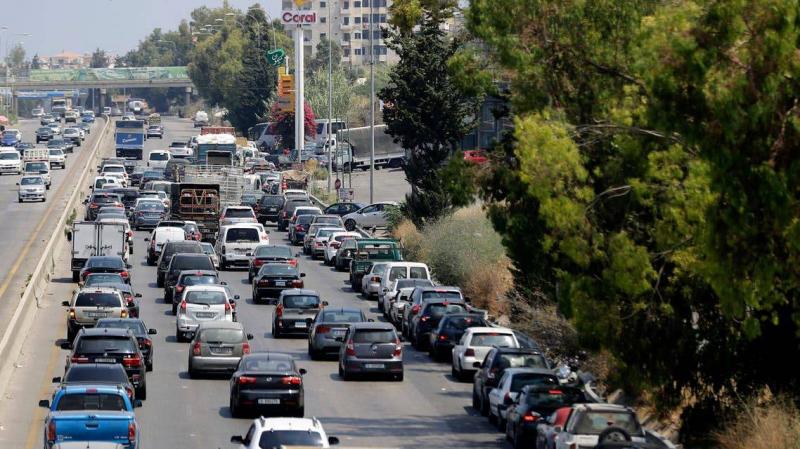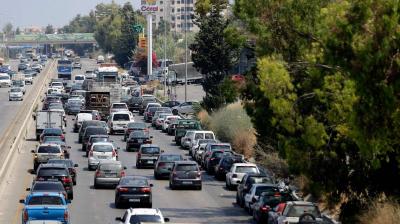A delegation from the International Monetary Fund (IMF), headed by Mahmoud Mohieldin, visited Lebanon yesterday, Tuesday, where it met with Prime Minister Najib Mikati to formulate an agreement on a rescue plan aimed at halting the accelerating economic collapse that has been ongoing for two years. The Lebanese authorities had previously announced the formation of a delegation to negotiate with the IMF, including Deputy Prime Minister Saadeh Chami, Minister of Finance Youssef Khalil, Minister of Economy and Trade Amin Salam, and Governor of the Central Bank of Lebanon Riad Salameh, with assistance from specialized experts based on the topics or files being negotiated.
**Internal Arrangements**
In this context, Minister of Economy and Trade Amin Salam explained to "Al-Arabiya.net" that the IMF's priority is to address Lebanon's default on debt payments, protect the rights of depositors, especially the small ones, and create a comprehensive economic plan that includes new figures to determine the extent of losses. He noted that the fund requested the government to "arrange the internal house" concerning agreeing on a clear economic plan with unified figures, stating that it is impossible to proceed to negotiations amidst internal disagreements regarding figures and reforms. He anticipated reaching an agreement, termed a "Memorandum of Understanding," with the IMF before the end of the year.
**Pegging the Dollar**
Regarding the economic situation and living conditions in the country, in addition to the soaring dollar exchange rate, Salam revealed, "The government will work to control the fluctuation of the dollar and stabilize it at a price of 12,000 lira in the coming months." He clarified that reopening aid channels for Lebanon is linked to the extent of compliance with negotiations with the IMF, and the coordinator of international assistance for Lebanon, Ambassador Pierre Duquesne, who previously visited Beirut, conveyed positive messages that the funds from "Cedar" (an international conference organized years ago under the auspices of France to aid Lebanon) are still available, but their disbursement is contingent on our positive engagement with the IMF and our commitment to the required reforms.
**Recovery Plan**
Additionally, he mentioned that the recovery plan developed by the Ministry of Economy should coincide with a plan to revitalize productive sectors, such as industry, disclosing that the World Bank has expressed readiness to support small and medium enterprises, especially those affected by the Beirut port explosion, with an allocated amount ranging from 25 to 70 million dollars for this purpose.
**Arab Relations**
The minister confirmed that there is no way out of the current crisis without regaining international trust and the assistance of the IMF, highlighting that Prime Minister Najib Mikati is keen on activating communications with the Arab neighbors and strengthening relations with them. He also revealed plans for Mikati to undertake foreign visits to Gulf countries.
**Subsidy Card**
Regarding the subsidy card that the government promised to launch to assist poor families, he explained that it will be launched soon through the Impact platform used for registering those wishing to receive the COVID-19 vaccine, as it has proven effective and successful. It will be under the supervision of the Central Inspection authority, and registration will be open to all Lebanese families; however, assessing the family's living situation will rely on specific criteria, including lifting banking secrecy to determine eligibility for the card.
It is notable that the economic collapse, which the World Bank has classified among the worst globally since 1850, has depleted Lebanon's foreign currency reserves in recent months and caused the Lebanese lira to lose more than 90% of its value, pushing 78% of Lebanese people below the poverty line, amid the emigration of thousands of the affluent and well-to-do. Additionally, Lebanon's loss of trust from the international community in the ruling political class, which has not implemented the required reforms to secure support for the economy's salvation, has exacerbated the situation.




